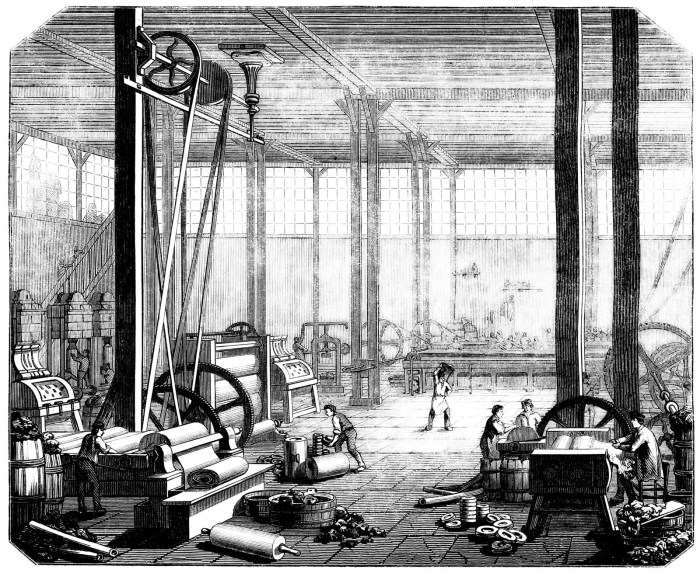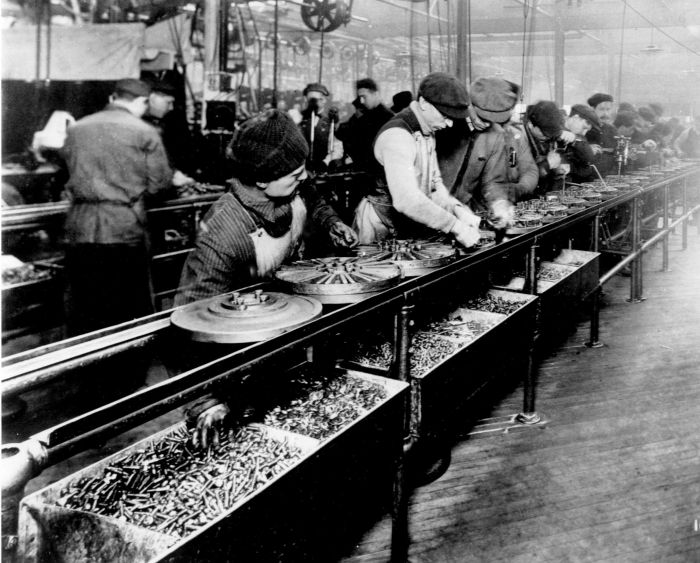How did the factory system impact towns weegy – How did the factory system impact towns? This question delves into the profound transformation that industrialization brought upon urban centers, shaping their economic, social, and environmental landscapes. From the bustling streets filled with new employment opportunities to the social challenges that emerged, the factory system left an indelible mark on towns, forever altering their character and trajectory.
The introduction of factories sparked a surge in job opportunities, drawing people from rural areas to urban centers in search of work. Factory wages, while often meager, provided a steady income that raised the standard of living for many families.
Towns grew rapidly as factories expanded, creating a demand for housing, goods, and services, leading to the development of new industries and businesses.
Economic Impact on Towns

The factory system had a significant impact on the economic development of towns. As factories were established, they provided new job opportunities for the local population. This led to an increase in the number of people living in towns, as well as an increase in the overall economic activity.Factory
wages also had a significant impact on the standard of living in towns. In many cases, factory workers earned higher wages than agricultural workers, which allowed them to purchase more goods and services. This led to an increase in the demand for goods and services, which in turn led to the growth of businesses in towns.The
factory system also contributed to the growth of towns by attracting new businesses to the area. Businesses such as shops, restaurants, and hotels were built to serve the needs of the factory workers and their families. This led to a further increase in the economic activity and growth of towns.
Social Impact on Towns
The factory system also had a significant impact on the social structure of towns. As factories were built, they often attracted workers from rural areas. This led to a change in the family structure of towns, as many families moved to towns to be closer to the factories.The
factory system also had a significant impact on gender roles in towns. In many cases, women were employed in factories, which gave them a greater degree of economic independence. This led to a change in the traditional roles of men and women in towns.The
factory system also had a significant impact on the health and well-being of workers and their families. Factory work was often dangerous and unhealthy, and many workers suffered from respiratory problems, injuries, and other health issues. This led to a decrease in the overall health and well-being of workers and their families.The
factory system also contributed to the rise of social problems in towns. As factories were built, they often attracted a large number of workers to the area. This led to overcrowding, crime, and other social problems.
Environmental Impact on Towns
The factory system also had a significant impact on the environment of towns. As factories were built, they often released pollutants into the air and water. This led to air and water pollution, which had a negative impact on the health of the people living in towns.The
factory system also contributed to deforestation and other environmental issues. As factories were built, they often required large amounts of wood for fuel and other purposes. This led to the clearing of forests, which had a negative impact on the environment.
Architectural Impact on Towns

The factory system also had a significant impact on the architecture of towns. As factories were built, they often changed the appearance of towns. Factories were often large and imposing structures, and they often dominated the skyline of towns.The factory system also led to the development of new types of housing and living conditions around factories.
Workers often lived in small, crowded houses that were located near the factories. This led to the development of slums and other poor living conditions in towns.
Cultural Impact on Towns: How Did The Factory System Impact Towns Weegy

The factory system also had a significant impact on the culture of towns. As factories were built, they often attracted workers from different cultures. This led to a mixing of cultures in towns, which had a significant impact on the values and beliefs of the people living in towns.The
factory system also led to the development of new forms of entertainment and leisure activities in towns. As workers had more money and leisure time, they began to spend more money on entertainment and leisure activities. This led to the development of new forms of entertainment, such as music halls and theaters.
Answers to Common Questions
What were the primary economic benefits of the factory system for towns?
Increased job opportunities, higher wages, and the growth of new industries and businesses.
How did the factory system affect family structure and gender roles?
It led to a shift away from traditional family structures, with women entering the workforce and children often employed in factories.
What were the major environmental consequences of the factory system?
Air and water pollution, deforestation, and the degradation of public health.